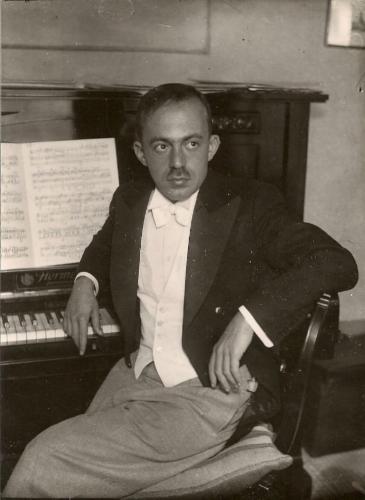Drie romances voor sopraan en orkest op. 41a
By Géza Frid
Details
Words by Heinrich Heine
Die Beschwörung
Ein Weib
Frühlingsfeier
Originally composed for soprano and piano (opus 41)
Program note: De Drie Romances, oorspronkelijk voor sopraan en piano, zijn in het jaar 1952 ontstaan en aan de zangeres Erna Spoorenberg opgedragen, met wie de componist een concerterend duo vormt, en die de liederen dadelijk op haar repertoire nam. Van verschillende kanten werd het verlangen naar een orkestratie - trouwens de muziek zelf vroeg ernaar - kenbaar gemaakt, aan welk verlangen de componist gaarne heeft voldaan. De instrumentatie van het werk werd in 1955 voltooid.
Heines cynisch-wrange gedichten hebben, in tegenstelling tot zijn lyrische, bij de componisten van zijn eigen tijd weinig weerklank gevonden. Het in toon zetten van deze niet-lyrische teksten ligt onze hedendaagse scheppende toonkunst misschien beter, waarbij de componist echter weinig 'moderne' middelen mag aanwenden en zelfs enigszins naar de romantiek terug moet buigen. - GEZA FRID

